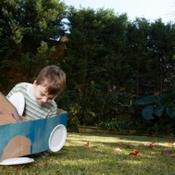 When the uniquely challenging task of raising children is supported within the community, it benefits families and society as a whole. Given that communities are made up of diverse families, it would stand to reason those who care for children and provide opportunities for both parents and children to connect to others are stronger and higher functioning.
When the uniquely challenging task of raising children is supported within the community, it benefits families and society as a whole. Given that communities are made up of diverse families, it would stand to reason those who care for children and provide opportunities for both parents and children to connect to others are stronger and higher functioning.
Given the demands they face and the futures they’re responsible for, all parents can benefit from support. The first step for parents in getting the support they need is to ask for it. However, many parents are at a loss as to where to look for support, and others may feel uncomfortable accepting support when it is offered. When parents receive the support they need, they’re likely to be more relaxed and healthier, set an example for their children that it is okay to ask for help, and show their kids the value in both helping and being helped.
The primary objective of community-based support programs for parents is to increase their capacity to develop the skills to acquire resources, a support network, and services. Community-based parent support programs and initiatives can have a direct impact on child behavior outcomes in that they enhance parents’ capabilities and efficacy, particularly when they are family-centered as opposed to professionally centered.
Family-centered or help-giving approaches move away from the perception professionals are the experts who determine the needs of parents and prescribe what to do to increase their quality of life. Family-centered clinicians see themselves as facilitating parents in finding the resources and support they need. In my experience as a therapist working with families, parents who perceive themselves to be more competent have more positive interactions with their children, which I believe encourages children’s social and emotional development and has a positive impact on behavior.
Characteristics to look for in community-based parent support programs are a high degree of respect, high regard, compassionate support, family choice for intervention options, resources to make informed decisions, and access to supports that allow parents to nurture their children using techniques that create optimal outcomes.
Family-centered or help-giving approaches move away from the perception professionals are the experts who determine the needs of parents and prescribe what to do to increase their quality of life.
The way help is provided in these support programs can have a direct impact on their outcomes. Help should be provided using methods that promote parental self-efficacy and the ability to foster social and emotional development of children. Programs that function in a family-centered manner may increase parents’ sense of confidence and competence. Practices that elicit parents’ feedback on information they believe is important, and that actively solicit parental participation, also help to achieve this.
When parents are provided opportunities for personal growth, and to gain the knowledge and skills to perform in leader roles, parent leadership is fostered. Parent leadership is said to be successful when there is solid collaboration between parents and practitioners with a foundation of mutual respect, equal responsibility, expertise, and confidence in the decisions being made that impact their families and the greater community.
The benefits of these programs and initiatives aren’t limited to those being helped. Parents who get involved to provide support for other parents may feel a sense of pride and fulfillment in knowing they are making a difference while simultaneously promoting their own growth and development.
Some resources for finding and accessing community-based support programs for parents include:
- Parenting and family support organizations
- Local parenting groups and play groups
- Schools
- Babysitting clubs
- Libraries
- Government agencies (e.g., departments of human and health services)
- Family and friends
References:
- Dunst, C.J., Trivette, C.M., & Hamby, D. W.(2006). Family support program quality and parent, family and child benefits. Asheville, NC: Winterberry Press.
- Dunst, C. J., Trivette, C. M., & Hamby, D. W. (2008). Research synthesis and meta-analysis of studies of family-centered practices. Asheville, NC: Winterberry Press.
- Kagan, S. L., Weissbourd, B., eds. (1994). Putting families first: America’s family support movement and the challenge of change. San Francisco, CA: Jossey-Bass.
- Layzer, J. I., Goodson, B. D., Bernstein, L., & Price, C. (2001). National evaluation of family support programs: Final report. Cambridge, MA: Abt Associates.

The preceding article was solely written by the author named above. Any views and opinions expressed are not necessarily shared by GoodTherapy.org. Questions or concerns about the preceding article can be directed to the author or posted as a comment below.

 Why Your Child's Emotional Intelligence Should Be a Priority
Why Your Child's Emotional Intelligence Should Be a Priority What If Babies and Toddlers Understand More Than We Think?
What If Babies and Toddlers Understand More Than We Think? Learning Through Play: The World as Your Child's Classroom
Learning Through Play: The World as Your Child's Classroom

